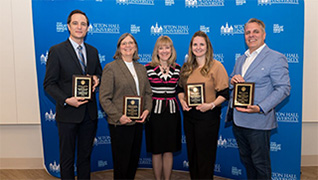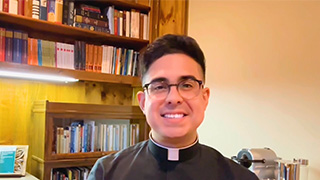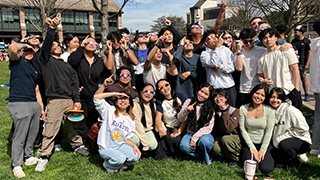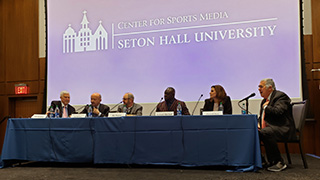Economic Development in the Basque Country 1983-1995: A Lonergan Perspective
Thursday, March 24, 2016
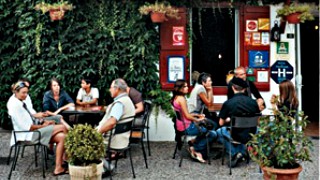
In 1980, the economic situation of the Basque Country was very fragile. When the Basque Government came to power in 1980, social and economic indicators were clearly trending downwards and the future of the country was bleak. Yet, fifteen years later, having consolidated its governance over its regional affairs and nurturing the collaborations among small and medium-sized enterprises, the country came to enjoy what was to be one of the highest standards of living in Europe, with positive prospects for its continued social and economic development.
Paul Hoyt-O'Connor received his Ph.D. in philosophy from Boston College. In addition to several articles in the areas of ethics and political philosophy he is the author of Bernard Lonergan's Macroeconomic Dynamics. His collaborators on the Basque project are Iñigo Calvo and Ricardo Aguado, both from the University of Duesto, Bilbao.
About the Center for Catholic Studies
Founded at Seton Hall University in 1997, The Center for Catholic
Studies is dedicated to fostering a dialogue between the Catholic
intellectual tradition and all areas of study and contemporary culture,
through scholarly research and publications and ongoing programs for
faculty, students, and the general public. In 2001, the Center
conducted the annual faculty summer seminar, “The Core of the Core,”
which originated the present University Core Curriculum. The Center
also developed the undergraduate degree program in Catholic Studies with
its major, minor and certificate, which in 2012 became the Department
of Catholic Studies. The Center continues to support the Department with
scholarship aid and its ongoing program of co-curricular activities.
Focusing on the central role of the faculty, the Center is the sponsor of regular Faculty Development programs, including lectures, seminars and retreats. The Center also administers two national faculty development programs: Collegium: A Colloquy on Faith and Intellectual Life, and The Lilly Fellows Program.
The Center maintains a global focus in international scholarship and is the home of the G.K. Chesterton Institute for Faith & Culture, as well as the Bernard J. Lonergan Institute. The Institutes offer opportunities for study and research, as well as ongoing programs related to faith and culture. In addition, the Micah Institute for Business and Economics concentrates on communicating Catholic Social Teaching and ethics to business education at Seton Hall and the wider business community. The Center also publishes the prestigious Chesterton Review, The Lonergan Review.
For more information, click here »
About the School of Diplomacy and International Relations
The School of Diplomacy is a leading center for the study
of diplomacy and international relations, dedicated to high standards of
academic excellence and professional training; extending the frontiers
of knowledge; and making a difference in the rapidly changing global
environment. The School was the first professional school of
international relations to be established after the Cold War, in 1998.
At that time, the School forged an exclusive alliance with the
United Nations Association of the U.S.A., which continues to allow the
School special access to the United Nations community.
For more information, click here »
About the Bernard J. Lonergan Institute
The Institute is dedicated to the study of Bernard
Lonergan's Generalized Empirical Method--GEM--and its application to
contemporary culture. Such a method is based not only in the data of
sense but also the data of consciousness. It seeks to understand not
only the method of empirical sciences but also the methods of human
studies and theology. In addition to ongoing research and scholarship,
the Institute focuses on faculty development and sponsors
graduate study, faculty and student reading groups, ongoing programs and
the publication of the internationally acclaimed journal - The Lonergan
Review.
For more information, click here »

